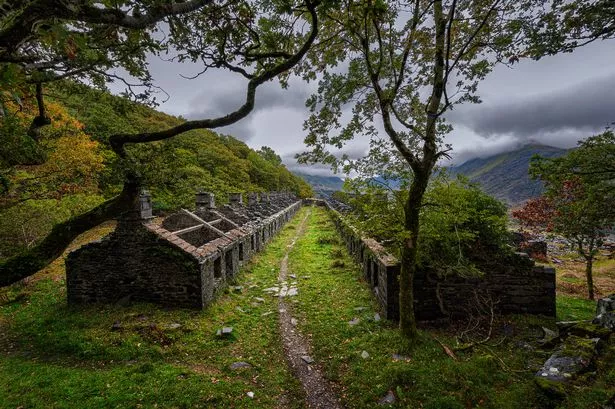WASHINGTON — Facing viral rumors of his imminent death, President Trump emerged in the Oval Office on Tuesday alive and scowling. Core tenets of his economic policies were under strain. Flashy diplomatic overtures to Moscow appeared to be backfiring. And a scandal over a notorious sexual abuser that has fixated his base was roaring back to life in Washington.
It was a challenging week for the president, whose aggressive approach to his second term has begun to hit significant roadblocks with the public and the courts, and overseas, with longstanding U.S. adversaries Trump once hoped to coax to his will.
The president called for an expedited Supreme Court review of an appellate court ruling that he had exceeded his authority by issuing sweeping global tariffs last spring — a decision that, if left standing, could upend the foundation of his economic agenda. On Friday, the Bureau of Labor Statistics issued jobs numbers showing a contraction of the labor market in July, a first since the depths of the pandemic in 2020.
New art lining a hallway in the West Wing features photographs of Trump’s summit with Vladimir Putin in Alaska, where Trump said the Russian president had agreed to meet with Ukraine’s president, Volodymyr Zelensky, to discuss an end to the war. Yet, three weeks on, Russia had launched its most intense bombardment of Kyiv in years, and Putin traveled to Beijing for a military parade hosted by Xi Jinping, which Russian state media used to mock the U.S. president.
During an appearance in the Oval Office on Friday afternoon, Trump said reaching a deal to end the war between Russia and Ukraine has turned out to be “a little bit more difficult” than he initially thought.
And a rare spree of bipartisanship broke out on Capitol Hill — in opposition to Trump’s causes.
A tense hearing at the Senate Finance Committee with Health and Human Services Secretary Robert F. Kennedy Jr. laid bare concern over the direction of federal vaccination policy and public health recommendations under his leadership across party lines.
Trump declined to stand behind him wholeheartedly after the hearing. “He’s got some little different ideas,” Trump told reporters, adding: “It’s not your standard talk.”
On Wednesday, moments after a group of more than 100 women pleaded for Trump’s help from the steps of the Capitol seeking transparency over the investigation of their alleged abuser, Jeffrey Epstein, Trump dismissed the matter as a “hoax” perpetrated by Democrats.
“The Department of Justice has done its job, they have given everything requested of them,” Trump repeated on Truth Social on Friday. “It’s time to end the Democrat Epstein Hoax.”
Trump was close friends with Epstein for more than a decade. But his base has repeatedly called for the release of thousands of files in his case — and some of Trump’s staunchest allies in Congress are set to vote against his wishes for a discharge petition directing the Justice Department to do so in the coming days.
A far-right political activist released hidden camera footage this week of a Justice Department official claiming the agency would redact the names of Republicans, but not Democrats, identified in the files. In the video, the DOJ official also suggested that Epstein associate Ghislaine Maxwell was recently moved to a lower-security prison as part of a deal to keep her quiet.
Public support for Trump has appeared stable since July, with roughly 42% of Americans approving of his job performance across a series of high quality polls. But the end of the August recess in Washington — and the oncoming flu and COVID-19 season — could return public attention to subjects that have proved politically perilous for the president this week.
Polls show that a majority of the president’s Republican voters support vaccines. They oppose Putin and increasingly support Ukraine. And across the political spectrum, Americans want the Epstein files released, unredacted and in full.
A string of court losses
The president’s agenda suffered several setbacks this week, as federal judges across the country ruled his administration had broken the law in various instances.
In San Francisco, a federal judge ruled that Trump’s deployment of military troops in Los Angeles was illegal and barred soldiers from aiding immigration arrests in California in an order set to take effect next week.
In Boston, a federal judge said the Trump administration broke the law when it froze billions of dollars in research funds awarded to Harvard University. In another court ruling, a judge temporarily blocked the Trump administration from deporting dozens of unaccompanied migrant children to Guatemala.
And on Friday afternoon, a federal judge stopped the Trump administration from taking away the deportation protections under Temporary Protected Status for hundreds of thousands of Venezuelans and Haitians living in the United States.
While the court decisions represent a snag for key portions of the administration’s agenda, the cases continue to play out in court — and could ultimately turn in favor of Trump.
Legal experts are closely watching those decisions. In the case of the military troop deployments, for instance, some fear a reversal on appeal could ultimately hand the president broader power to send troops to American cities.
Trump has floated additional federal deployments — to Chicago, Baltimore and New Orleans — in recent days.
Trump reacts to a bad week
Trump greeted the waves of bad news with a characteristic mix of deflection, finger-pointing and anger.
He warned that losing his appeal on tariff policy at the Supreme Court would render the United States a “third world country,” telling reporters, “if we don’t win that case, our country is going to suffer so greatly.” And he said he was “very disappointed” in Putin.
After the parade in Beijing — which was also attended by Prime Minister Narendra Modi of India, a longstanding U.S. ally now ostracized by Trump’s tariffs — drew widespread media attention, Trump wrote on social media that the countries were conspiring together against the United States.
“We’ve lost India and Russia to deepest, darkest, China,” he wrote.
In another lengthy social media post on Friday, Trump accused Democrats of fueling the Epstein “hoax” as a means to “distract from the great success of a Republican President.”
Days earlier, survivors of Epstein’s sexual abuse publicly pressured lawmakers to back a legislative measure to force the release of the sex trafficking investigation into the late financier.
“This is about ending secrecy wherever abuse of power takes root,” said Anouska De Georgiou, who was among the Epstein victims who held a news conference on Capitol Hill.
A few high-profile Republicans also broke with Trump on the Epstein issue, calling for more transparency on the investigation. Trump ally Rep. Marjorie Taylor Greene of Georgia said she is willing to expose those who are tied to Epstein’s sex trafficking case.
On a phone call with Trump on Wednesday morning, Greene suggested he meet with Epstein’s victims at the White House while they were gathered in town. He was noncommittal, the congresswoman told reporters.
The survivors left town without a meeting. At the direction of the White House, Republican leadership continues to press Republican members to oppose efforts to release the files.

